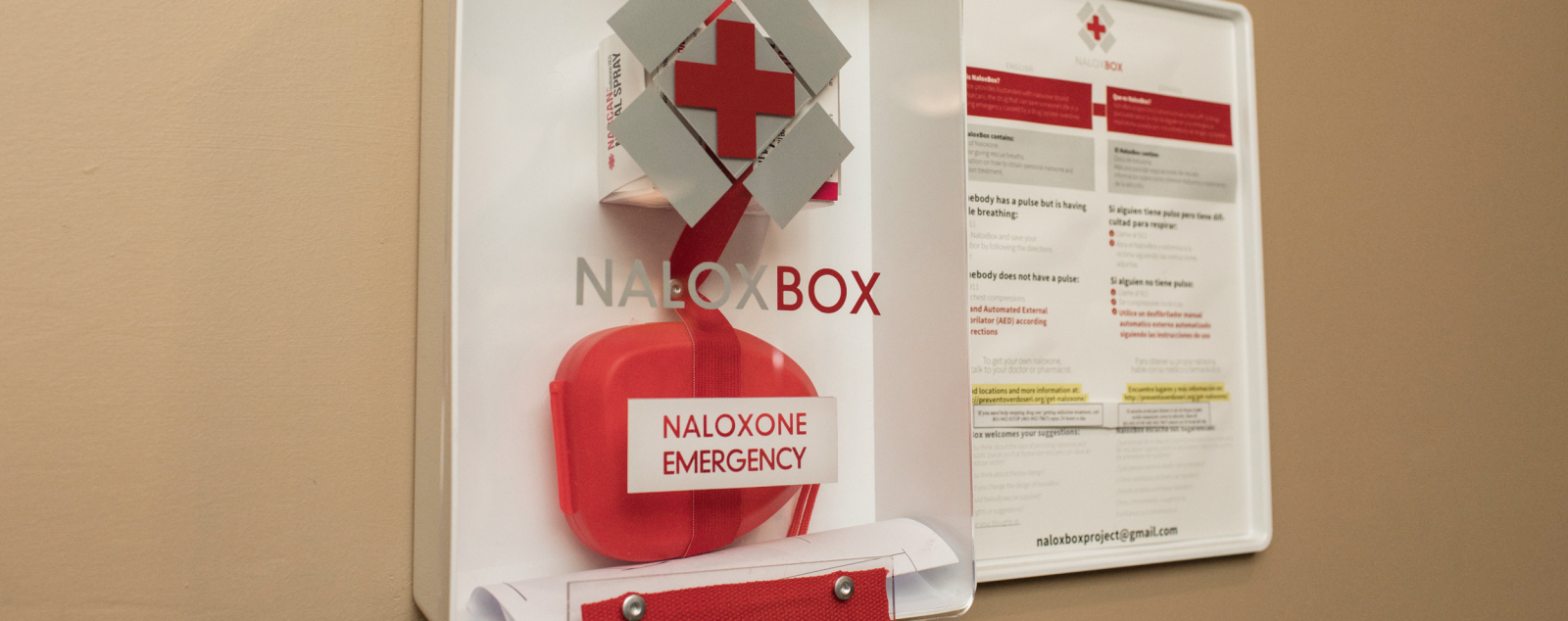You are here
Overdose Data to Action (OD2A)
The CDC Foundation’s Expanding Capacity to Address the Drug Overdose Epidemic program supports more than 200 field staff stationed across 45 jurisdictions as part of the CDC’s Overdose Data to Action (OD2A) program. The project recruits, selects, trains and onboards these personnel to support surveillance, prevention and response activities within OD2A-funded recipients and select unfunded states. CDC Foundation staff help public health departments and community organizations collect and respond to detailed information about overdose incidents in their area and advise on prevention strategies.
In addition to hiring and managing staff, the CDC Foundation coordinates and delivers specialty training sessions to build staff knowledge and expertise in areas such as peer learning and linkage to care, equity in overdose and recovery certification. The program also funded staff attendance at 163 job-specific training sessions and conferences to further build overdose prevention and response expertise.
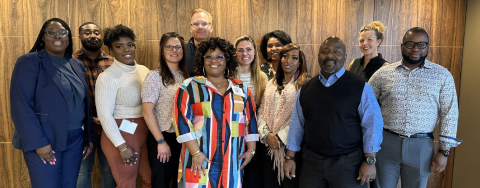
Our Work in Action
Peer Navigator Guide in Mississippi
Our Overdose Data to Action team at the Mississippi Department of Health helped create a Peer Navigator brochure, a vital resource designed to connect individuals with the support they need on their recovery journey.
Whether it's through community outreach, providing essential resources or guiding individuals toward treatment and well-being, we’re dedicated to creating safer, healthier communities for everyone.
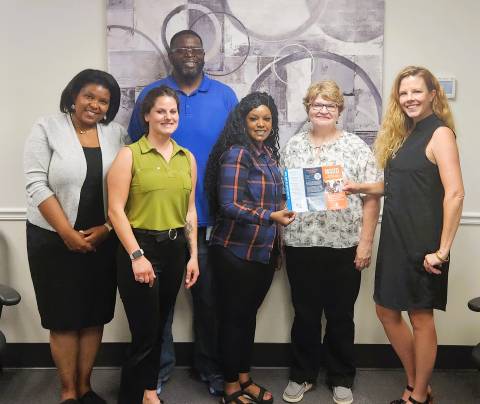
Narcan in New York
Schenectady, New York Community Health partnered with multiple community-based organizations as well as local and state law enforcement and EMS to aid in overdose prevention efforts including training in Narcan use.
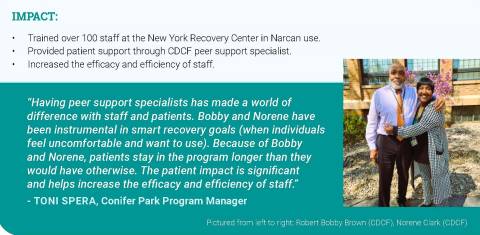
New Model in Minnesota
In Minnesota, we're taking proactive steps to address the overdose crisis by implementing the Overdose Fatality Review (OFR) model among local public health and safety teams. By focusing on guiding principles like reducing overdose deaths, recognizing substance use disorder as a chronic, treatable disease, responsibly using multi-sector data and committing to continuous improvement, we’re driving real change in our communities.
Success in St. Louis
The City of St. Louis Department of Health, with the help of the CDC Foundation field employees, launched a new Behavioral Health Bureau to address the community’s rising mental health and substance abuse issues. The Bureau’s objectives include creating linkages to care for substance use prevention, increasing data availability on substance use, reducing stigma and promoting help-seeking behaviors.
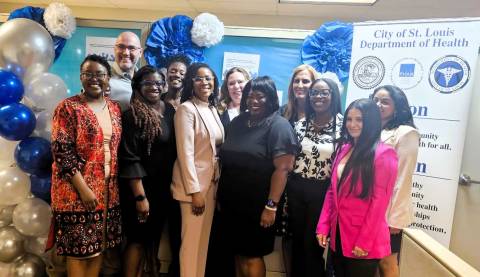
Stories from the Field
The OD2A Impact Report
The Overdose Data to Action (OD2A) staffing support program is supported by the Centers for Disease Control and Prevention (CDC) of the U.S. Department of Health and Human Services (HHS) as part of a financial assistance award totaling $35,599,796 with 100 percent funded by CDC/HHS. The contents are those of the author(s) and do not necessarily represent the official views of, nor an endorsement by, CDC/HHS or the U.S. Government.
- Centers for Disease Control and Prevention
- United States of America
